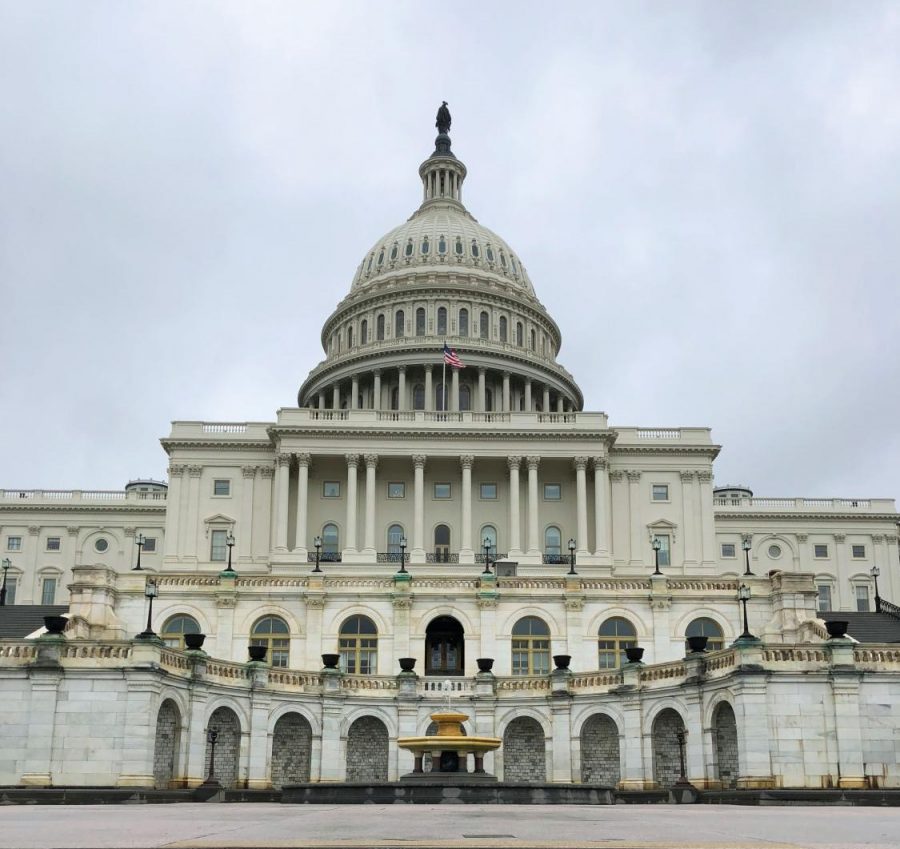Government shutdown hits home
St. Louis Park lives affected by federal decisions
January 16, 2019
For senior Jack Ostrovsky, the government shutdown is more than simply a news headline. According to Ostrovsky, his father, a federal worker for the Internal Revenue Service, has been out of work for three weeks because of the shutdown.
“Like many federal workers, (my father) wants to get back into the routine and especially after it’s been such a long time. He wants to get back to work,” Ostrovsky said.
According to Kare11, the partial government shutdown began Dec. 22 after President Trump demanded funds to build a wall on the United States’ southern border with Mexico. Because of what is the longest shutdown in United States history, out of the 32,436 federal employees in Minnesota, 4,790 are either furloughed or not being paid.
Sophomore Elie Grassley said while the shutdown has not yet impacted her family, if it continues on it will.
“My mom clerks for a federal judge at the courthouse in Minneapolis,” Grassley said. “We haven’t been affected in the past, but if the shutdown keeps going on for five more days then my mom will stop getting paid.”

Ostrovsky said the shutdown poses a difficult situation for those employed by the federal government.
“That’s a big reason that we would want the shut down to end because people’s lives are being played like cards,” Ostrovsky said.
Sophomore Miles Massie said he believes the fate of the shutdown is in the hands of the Democratic party.
“(The shutdown) is great, and the Democrats could end it by giving us the damn wall,” Massie said. “I feel very sad for (government employees), and the Democrats could easily fix this.”
According to the St. Louis Park Emergency Program (STEP) executive director Derek Reise, the program has not experienced an influx of those in need as a result of the government shutdown. However, Reise said STEP anticipates a greater need when the federal Supplemental Nutrition Assistance Program (SNAP) will not cease to have funds.
According to Reise, without SNAP, STEP would have to provide approximately four times as many donations to low-income individuals.
“If (the shutdown) lasts past February, we would see a dramatic, huge increase (in food requests) because that’s when the SNAP benefits would run out for people,” Reise said.
Grassley said the unpredictable nature of the government shutdown leaves her family preparing to rely on another source of income.
“I guess we’re just going to have to rely on my stepdad to bring in the income for the family until the shut down is finished but who knows when that’s going to be,” Grassley said.
Ostrovsky said while his family is combating the economic repercussions with savings, many other government employees may have greater monetary problems.
“We have savings and try to prepare for stuff like this and (my father) will get paid eventually,” Ostrovsky said. “I recognize it’s a big issue and it’s worse for families that are dependent on one income.”
Sophomore Sam Swisher said he feels students should acknowledge the shutdown not only burdens federal workers in Washington D.C., but also those in St. Louis Park.
“It’s really unfortunate that Washington is so polarized it affects people — everyone in the country — even this close to St. Louis Park people are being affected by the government shutdown,” Swisher said.
According to Reise, donations are very valuable to STEP during this shutdown.
“Donations can be brought to STEP any time during open hours but we really appreciate any support students can give,” Reise said.






